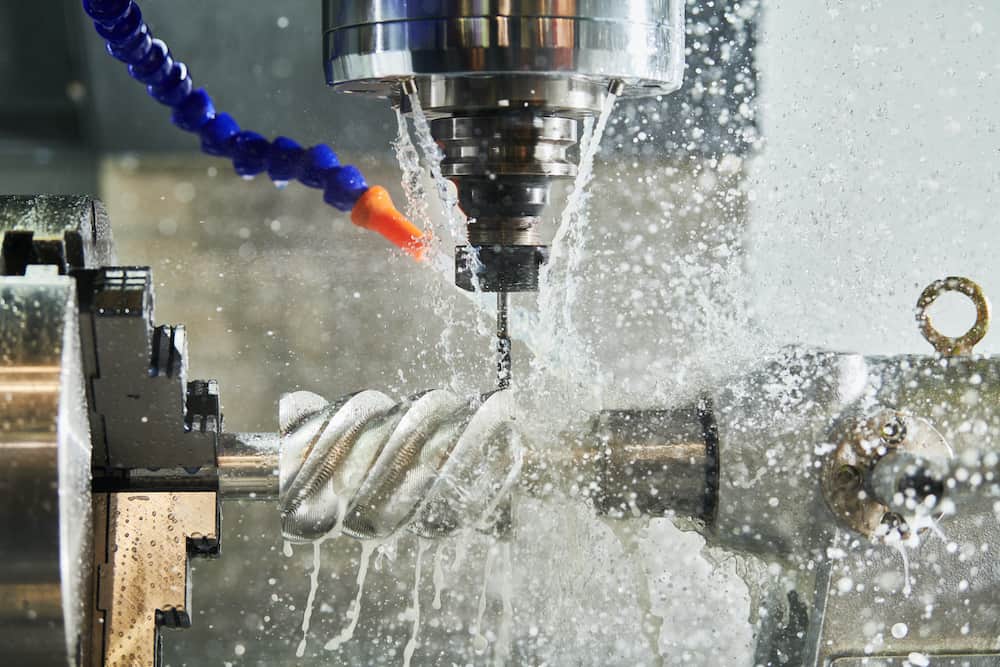Why is coolant important?
Coolant in purpose is widely understood – it’s used to temper high temperatures common during machining, and aid in chip evacuation. However, there are several types and styles, each with its own benefits and drawbacks. Knowing which cnc coolant – or if any – is appropriate for your job can help to boost your shop’s profitability, capability, and overall machining performance.
Continue reading to learn more about different types of coolants for CNC machining.
What is coolant?
Also known as a cutting fluid, It is a specific lubricant type that helps CNC machines to easily cut different materials, including fibreglass, metals, high-density plastic, and so on.
When technicians operate at low cutting speeds, the coolants are in charge of lubricating the process of cutting. On the other side, at high speeds of cutting, the coolant cools the workpiece.
Types of coolant used in CNC machining
Machining coolants are categorized into the four following categories: synthetic fluids, semi-synthetic fluids, soluble oils, and straight oils.
Synthetic fluids
Synthetic coolants do not contain petroleum-based oil. Usually, they consist of lubricants and rust inhibitors dissolved in water. Suppliers provide synthetics as concentrates, much like soluble oils, and they are mixed with water to create the coolant.
Synthetics are preferred for high heat and high-velocity metalworking, such as surface grinding. Additives can have a profound effect on lubricity and, when added to some synthetics, give them better lubricating characteristics than straight oils without additives.
Semi-synthetic fluids
These types contain both synthetic (polymer) and oil. These types of fluids can contain from 5% oil to 35% oil. To put it simply, they contain the best of both worlds. The smaller percentage of oil allows for heat to be way faster dissipated than with soluble oils, improving finish and tool longevity.
Soluble oils
Soluble oils are suitable for light to heavy-duty machining operations, including ferrous and nonferrous applications. Soluble oils usually contain 40 percent or more oil and are mixed with water to create the metalworking fluid. These fluids provide good cooling — water has a high heat capacity and readily dissipates heat — and lubrication capabilities that results from the blend of oil and water.
Straight oils
Water-insoluble straight oils are derived from petroleum (mineral oils), animal or vegetable origin and are used “straight,” without dilution with water.
These oils provide good lubricity and rust prevention, extended sump life and are easy to maintain. Also, they do not sour, as bacteria will normally only survive in fluids containing water.
Straight oils may be a blend of one or more of the various base oils and may also contain boundary and/or extreme-pressure additives such as sulfur, phosphorous or chlorine compounds. Straight oils reduce the forces generated as a tool cuts metal so the tool cuts cleanly to produce a smooth surface finish on the workpiece.


